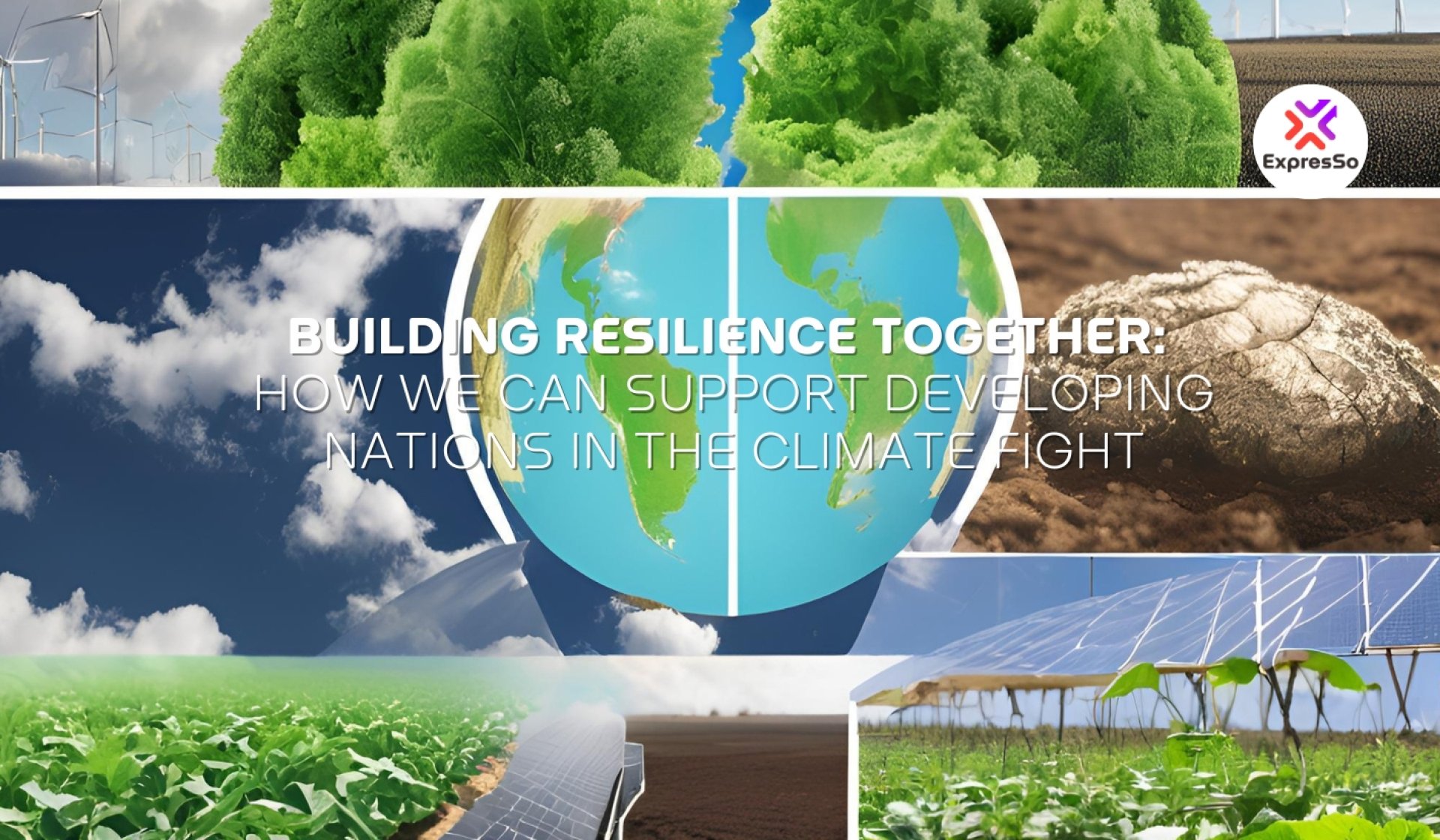Supporting Developing Nations in the Climate Fight

Climate change is one of the most pressing global challenges of our time. While it affects every corner of the planet, its impacts are not evenly distributed. Developing countries bear the brunt of climate change, facing extreme weather, food and water insecurity, and economic instability. Despite contributing the least to the problem, these nations are among the hardest hit.
The international community has recognized the need to support developing countries, with pledges made at global summits like the Conference of Parties (COP). However, many promises remain unfulfilled, leaving these nations vulnerable. Addressing this imbalance requires practical action and global collaboration.
The Unique Challenges Faced by Developing Nations
Solutions: How We Can Help
The international community has recognized the need to support developing countries, with pledges made at global summits like the Conference of Parties (COP). However, many promises remain unfulfilled, leaving these nations vulnerable. Addressing this imbalance requires practical action and global collaboration.
The Unique Challenges Faced by Developing Nations
- Increased Extreme Weather Events - Cyclones, floods, droughts, and other extreme weather events are becoming more frequent and intense due to climate change. Countries like Bangladesh, Mozambique, and Ethiopia face catastrophic losses of lives, homes, and infrastructure, making recovery difficult.
- Agricultural Vulnerability - Developing nations often rely heavily on agriculture, which is highly sensitive to climate change. Erratic rainfall, rising temperatures, and the spread of pests reduce crop yields and livestock productivity, leading to food insecurity. For example, Sub-Saharan Africa, which depends on rain-fed agriculture, is particularly vulnerable to prolonged droughts.
- Water Scarcity - Many developing nations already face water stress. Climate change exacerbates this issue through unpredictable precipitation patterns and glacial melt. In regions like South Asia, where rivers depend on glacial water, millions are at risk of losing access to clean water.
- Limited Resources for Adaptation - These countries lack the financial, technological, and human resources needed to prepare for and recover from climate impacts. Without support, their path to sustainable development is hindered.
Solutions: How We Can Help
- Financial Support - Financial aid is essential for building resilient infrastructure and supporting adaptation measures. The Green Climate Fund (GCF), for instance, was established to help developing nations transition to low-carbon, climate-resilient economies. Yet, its resources are insufficient to meet growing demands. Wealthier nations must fulfill their financial commitments to help bridge this gap.
- Technology Transfer - Sharing advanced technologies can empower developing nations to adopt sustainable practices. Solar energy, for example, can provide clean, reliable power in regions with abundant sunlight. Partnerships between developed and developing countries can facilitate access to these innovations, creating opportunities for growth while reducing greenhouse gas emissions.
- Education and Capacity Building - Empowering local communities through education and training is key. Teaching sustainable farming techniques, urban planning strategies, and disaster preparedness equips people with the tools they need to adapt. Community-led initiatives that incorporate local knowledge often yield the most sustainable results.
- Building Resilient Infrastructure - Investing in infrastructure that withstands extreme weather events can save lives and boost economies. Flood defenses, climate-resilient roads, and sustainable water management systems can protect communities and provide long-term economic benefits.
Climate change is not just an environmental issue --- it's a human one. Supporting developing nations is a moral imperative and a practical necessity for global stability. As climate impacts worsen, addressing the needs of vulnerable countries helps ensure a healthier planet for everyone.
Just like a shot of espresso energizes your morning, small but consistent steps in climate action can create ripples of transformation.
How can we build stronger partnerships to support developing nations in the climate fight? Together, we can create a more resilient and sustainable future for all.
Reference : The Ethiopian Herald December 25 /2024
Related Content
Despite contributing only 5.73% of global emissions, ASEAN faces major climate risks. Adaptation is key to securing food for the future.
Carbon capture technology is evolving rapidly, offering a powerful solution to reduce CO₂ emissions and fight climate change.
Discover four key sectors—agriculture, energy, cities, and water—to invest in and drive impactful climate adaptation innovations.


